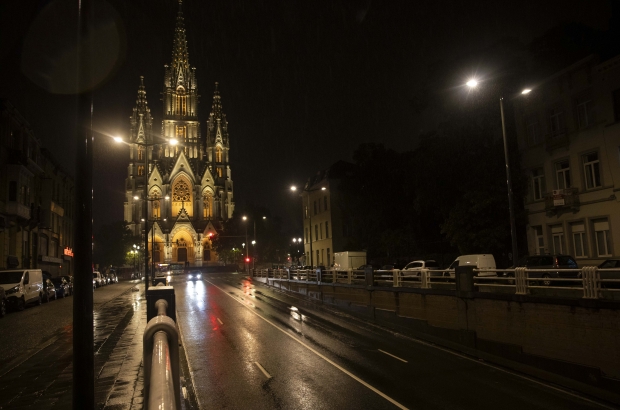- Daily & Weekly newsletters
- Buy & download The Bulletin
- Comment on our articles
Brussels mayors make U-turn on turning off street lights early
After initially indicating that public street lights will turn on later and turn off earlier in an effort to save on energy costs, the Brussels region has now decided to backtrack.
The suggestion had already invoked criticism, including from Brussels mobility minister Elke Van den Brandt (Groen), who pointed out that darkness in the morning hours is more likely to result in accidents involving pedestrians.
"Sunrise coincides with rush hour," explained Brussels Mobility spokeswoman Inge Paemen. "At that time, pedestrians are not always clearly visible. Turning off the lights earlier increases the risk of an accident."
The Cyclists' Union expressed satisfaction about the reversal of a previous agreement to keep the lights off for longer, pointing out that cyclists are also at a greater risk of accidents with reduced visibility.
The measure had been in effect since 1 October, with street lights switching off half an hour before sunrise. During that time, numerous complaints rolled in about the effects on public safety.
Meanwhile, some 164 Walloon municipalities remain committed to saving energy and have voted to switch off public lighting between midnight and 5.00 from 1 November until 31 March next year.
Other municipalities have also expressed interest in the initiative, but have yet to formalise their decision with the energy companies concerned.
The objective is to reduce energy consumption and to thus limit the impact of the rising cost of electricity on municipal budgets.
Some municipalities have adopted the approach in whole, while others are requesting energy providers to maintain lighting in certain areas that are particularly busy at night or where accidents occur.
This is the case, for example, in Louvain-la-Neuve, whose city centre is known for its nightlife.
In order to respond to specific requests from local authorities to maintain lighting in specific areas, energy providers will carry out some 2,000 technical interventions in the coming weeks.
“Half of the requested switch-offs will be effective from the night of 1 November,” explained energy provider ORES.
“The others will be scheduled for 1 December, the time needed to carry out the necessary work on the network to keep certain areas lit, but also to organise the blackouts in collaboration with the neighbouring network managers.”
The measure is expected to reduce lighting by 37% over four to five months, which is expected to result in an overall savings of €12 million.
“In the future, ORES wishes to pursue with its associated municipalities a reflection on the need to light where it is necessary, as it is necessary, when it is necessary and at the best cost,” the provider said.
“Several avenues are already being explored: adapting traditional time regimes or maintaining current reduced measures over time, identifying possible excess lighting to better protect biodiversity, or analysing the prospects offered by new remote management technologies in terms of monitoring consumption and dimming light according to time slots and the calendar.”


















